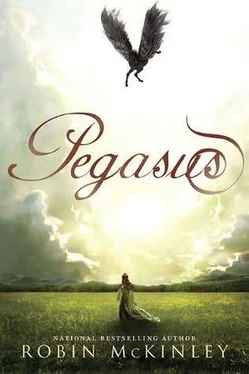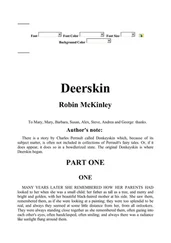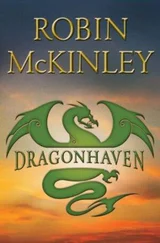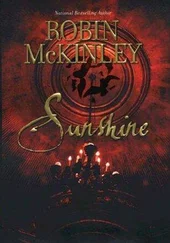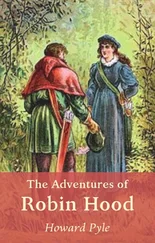The corridor walls around her opened, and she was walking on grass under the sky with many pegasi all around her—white and cream-coloured, all the shades of golden from flaxen to dark honey, amber-red to russet-red, coppery and tawny and dark loam brown; silver to twilight-grey; and occasionally black. They were cantering past her, their wings half spread, the occasional pale feather in a dark wing catching her eye. Where were they all going? They streamed past her, hundreds upon hundreds of them; occasionally one would turn its head and nod at her, although she recognised none of them. They seemed to be going somewhere, and they seemed to be drawing her along with them: where her slow walking feet were taking her was ultimately where all their quick cantering feet were taking them.
Then the landscape, or her dream, changed, and there was a small round valley in the hill before them, and this was their destination. Or, no—this was her destination, for most of the pegasi ran on, parting around the way into the little valley and disappearing behind the shoulders of the hill. A few pegasi slowed to a walk and accompanied her.
But the moment she entered the little circle of the valley she wanted to go no farther; her feet slowed, dragged, and finally stopped. The pegasi with her quietly stopped too.
The valley, now that she was in it, was bigger than it had looked from outside. A group of perhaps twenty pegasi stood in the flat centre of the valley, and with them stood a group of perhaps thirty humans. Sylvi saw the humans with a shock like a blow: how graceless they were, both squat and elongated—how ungrounded and unbalanced—with their strange thin pawing arms and huge clutching hands—and she forgot again that she had remembered how to be human, and she grieved that she was one of them.
A few of the pegasi standing with the humans turned their heads and acknowledged the newcomers, but most did not. None of the humans looked at them. And now, with another shock, Sylvi recognised that the humans were wearing armour, worn, stained armour, and they wore it as if they were used to wearing it and had been wearing it for a long time. They had swords slung round their hips or over their shoulders, and two or three had bows and quivers, and she saw one with a short dagger and halberd; all their faces were tired and grim.
As she noticed these things it was as if the scene were building itself around her. She knew, suddenly, that there was an army camp on the far side of the hill; now that she knew it was there she could hear it, smell the smoke of its cook- and watchfires; there was even a sentinel standing on the brow of the little hill to her right. He could not have been there before—she could not have missed him? Surely she could not have missed him?
She glanced back over her shoulder. The land was empty and silent. All the galloping pegasi were gone, all but the few who stood with her, and the grass they had galloped across was a smooth unruffled sea. Pegasi ordinarily left little mark of where they had been, but there had been hundreds of them, and even if they had contrived to bend not a single grass-stem, her plodding human feet should have broken a path—and there was no sign of her passage either.
She turned forward again. There was a small table, now, at the centre of the valley, around which the humans and the pegasi stood—or rather, on either side of which they stood, the humans on one side and the pegasi on the other. This distressed her; she wanted to walk forward and join the pegasi, or seize two of those ugly human arms with her own ungainly hands and draw them toward the pegasus side of the table. It was not good that they should stay so divided from each other. Was that not why she was here? To help end—to help soften—that division, between human and pegasus?
But where was she? She was walking in the Caves, the pegasus Caves, where no human had ever walked before. She was with Ebon and Lrrianay and Hibeehea. . . .
Where was she?
The armour the humans wore was unfamiliar to her. Old-fashioned perhaps—some of the poorer barons were still using armour their grandparents’ troops had worn, and some of the bits and pieces still in use in the practise yards at the palace were older still—but this seemed to her more than merely that. These men and women did not carry themselves like soldiers in a held-together-with-string unit—nor would one of the poorer barons have twenty pegasi as members of his company.
She knew a little about armour; lessons with Diamon included learning about your equipment and its history. This armour was like nothing she had seen before, mostly leather and very little chain, and the chain curiously linked; they wore no chausses or greaves, and their gauntlets and gorgets were peculiarly cut, as were the panels of their leather cuirasses. When one turned and spoke low-voiced to another, she could half hear the words, which seemed to be at least half known to her but strangely pronounced, and the rhythm of the sentences was odd and outlandish.
The one who had spoken glanced up. There was something odd about him; something about him marked him out from the others . . . no, the man standing next to him was another like him. . . . But what was the oddness? Did they stand differently, move differently, was their skin a different colour, their armour a different kind? They were both wearing slightly shabby once-grand gowns over their armour, but so were several of the others. Nothing she could put her finger on but she was certain....
One of the two drew a short baton from under his surcoat, held it flat across his palms and offered it to the other one.
She’d seen that gesture at hundreds of rituals. They were magicians. And in the rituals she knew, that particular gesture heralded some confirmation, validation, agreement—although the baton was usually brought by a third, more subordinate magician. She looked round again. But the rituals she knew took place at the palace, or at carefully planned and organised festivals elsewhere. This was not a battlefield, but the battlefield was obviously nearby.
Two humans unrolled a large, long sheet of what, by its pliancy, must be pegasus-made paper. The humans, perhaps disconcerted by something so unlike stiff, crackly parchment, handled it uneasily and laid it—cautiously, warily, protectively, attentively—on the table. Everyone was staring at it. The two humans holding it touched it as if they weren’t sure what sort of beast it was: was it an ally, was it hostile?
A battlefield alliance . . .
The strange armour, the language whose words were familiar but whose rhythms were not . . .
One of the magicians looked tired and worried and grim, like all the other humans.
The other one turned and looked at her . . .
. . . and for a moment he was Fthoom.
And she was walking in the Caves again, except that she wasn’t walking. She was standing still, and her three companions were standing with her. Lrrianay and Hibeehea were gravely watching her, and Ebon had his nose on her shoulder.
You okay?
She nodded. And then, startled, looked around. They were no longer in the long corridor, but a huge room, the ceiling lost in shadows overhead. There were other pegasi here—three that she could immediately see—one of them was lighting a candle in a niche in the wall. There were candles all around the walls at irregular intervals, and as the niches were various sizes, so were the candles. In the centre of the room, a low table stood, a dozen tall lamps on it, blazing with light.
In the light she could see the walls.... Millennia of tiny, frail feather-hands, smoothing and scooping, carving and scoring the natural walls of the cave....
There were portraits of pegasi everywhere on the walls, walking and flying, standing, running, lying, bowing, pawing, dancing, rearing, and doing other things she had no names for, as when two stood face to face and clasped their feather-hands together; or when, again face to face, four stood in a four-pointed star, knelt and bowed their heads, and wrapped their wings over each other. The curves of one pegasus, the billow of one tail or the fall of one mane, became a curve or a billow or a fall of the next; and in the flicker of the light, the rounds and hollows of all seemed to move as if with life.
Читать дальше
